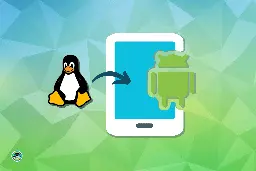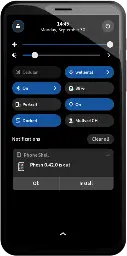Linux Phones
- Weekly GNU-like Mobile Linux Update (45/2024): Ubuntu Touch 20.04 OTA-6 and other updateslinmob.net Weekly GNU-like Mobile Linux Update (45/2024): Ubuntu Touch 20.04 OTA-6 and other updates
Ubuntu Touch deliver their 6th 20.04 release, postmarketOS share what progress they've made in October, a new collection of Sailfish Community News, a build your own x86_64 'phone' guide, and more! Also, as we're already on that day in some parts of the globe: Happy 15th anniversary, Nokia N900!

- Using OSM for navigation w/external GPS (GPS→NMEA over bluetooth→FOSS phone)-- Can any FOSS platforms do this?
My current rig:
- old android phone with GPS disabled
- external GPS device (NMEA over bluetooth)
- OSMand from f-droid for offline maps and navigation
- BlueGPS to connect to the bluetooth GPS device, grab the NMEA signal, and feed it as a mock location
- developer options » mock locations enabled
The idea is to save on phone battery so I can navigate more than an hour. The phone’s internal GPS is energy intensive because of all the GPS calculations. By offloading the GPS work to an external bluetooth GPS, the phone’s battery can be somewhat devoted to the screen because bluetooth uses much less energy than GPS. And NMEA carries lat/long so the phone need not do the calculations.
Not sure it actually works though.. been waiting for satellites for a while now. Anyway, I would like to know if this config can work on any FOSS platforms, like pmOS. Can OSMand run on pmOS or is there a better option? IIUC, Android apps are a huge CPU hog on pmOS because of emulation.
Ideally I would like to buy something 2nd-hand like a BQ Aquaris X5 and put pmOS on it. I’ll need a quite lean mapping and nav app that runs on pmOS, and also has the ability to use an external GPS.
For the first 15 minutes when satellites are taking forever to appear, I would like to use something like WiGLE WiFi Wardriving which makes use of wifi APs and cell towers the same way Google location does, but without feeding Google. Is there anything like that on pmOS, or any other FOSS phone platform?
Updates
Every mobile FOSS platform listed by the OSM project have been abandoned as far as I can tell. But perhaps OSM is just poorly tracking this because osmin and pure maps apparently both run on Postmarket OS:
- https://wiki.postmarketos.org/wiki/Osmin
- https://wiki.postmarketos.org/wiki/Pure_Maps
There is a network-dependent nav app called Mepo, but that would not interest me.
There is also Organic Maps which comes as a flatpak for aarch64. It requires the whole KDE framework which is fat in terms of size but probably not relying on emulation so it could perform well enough.
- I'm considering switching to postmarketOS on my primary phone (Xioami A2 Lite)
I have a Xioami A2 Lite, the version with 3GB of RAM, it runs Android One version 10, it's not so great performance wise but it's sufficient for my needs, anyway, after checking out pm site I found out it's supported via community builds, most of the stuff seem to work, but I'm worried about receiving calls and text messages, I also have some Android apps that I must run (though a container on my laptop would do the job actually but it'll be best if I could run them on the phone), also I don't have an OTG adapter so I'm worried if I'm ever stuck I can't switch TTY and reboot, also my phone's lock button is kinda stuck and needs some weird angle to respond, I have some old extra phone around in the case calls don't work on pm but I'd rather use only a single phone, I have zero use of any bank apps, and I don't have much of experience with roms installing and kernel baking, I have been using GNU/Linux on my laptop for three years and I have good understanding of how things work in a GNU/Linux system, what do you suggest for me? I'm fine staying on Android if that's the best option until I get a new phone
- postmarketOS Update: Accepted Grants, Timelines and Tokyopostmarketos.org postmarketOS in 2024-10: Accepted Grants, Timelines and Tokyo
Aiming for a 10 year life-cycle for smartphones

> * 2 Linux Mobile grants we applied for at the amazing @nlnet @NGIZero fund have been accepted: OpenIMSd and Enhanching Firefox for Linux on Mobile! 🎉 > * Libcamera progress > * Trailblazer now supports the PinePhone > * A generic (!!) qcom-msm8953 port > * Progress for pmb v3 > * systemd progress, new timeline > * Many mobile-config-firefox improvements, some features now optional via about:config > * and much more!
Summery via https://fosstodon.org/@postmarketOS/113421664736742629
- WhatsApp running through android-translation-layer (no container!) on Linux desktop

cross-posted from: https://lemmy.kde.social/post/2232894
> Since https://www.reddit.com/r/linux/comments/1gdhy7u/experimental_flathub_release_of_newpipe_on_linux/ got a bit of traction yesterday, this is WhatsApp straight from Meta running on Linux desktop using android-translation-layer. > > android-translation-layer (ATL) is a Wine-like approach to run Android applications on Linux. Rather than running an Android container like for example Waydroid does this instead implements the Android API. Note that right now it's very much work in progress and almost no app will work yet, but the fact that they have apps like Newpipe and WhatsApp running already is very promising! > > Join the Matrix chat at #android-translation-layer:matrix.org and follow along! >
- Weekly GNU-like Mobile Linux Update (41/2024): Successful moves and XMPP callinglinmob.net Weekly GNU-like Mobile Linux Update (41/2024): Successful moves and XMPP calling
This Week: postmarketOS moved to their own gitlab, a new app for XMPP calls, Plasma 6.2 bringing Alpine apks to Discover, improved Kirigami Addons, news from the GNOME Foundation, updates to user0's Mobile Friendly Firefox customizations and more!

- mikroPhone project is designing a smartphone with an emphasis on openness and privacyliliputing.com mikroPhone project is designing a smartphone with an emphasis on openness and privacy - Liliputing
mikroPhone project is designing a smartphone with an emphasis on openness and privacy
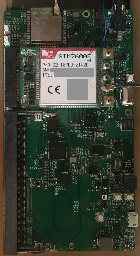
- Weekly GNU-like Mobile Linux Update (40/2024)linmob.net Weekly GNU-like Mobile Linux Update (40/2024): Phosh 0.'Answer to the Ultimate Question of Life, the Universe, and Everything'.0
postmarketOS reports progress and moves to self-hosted gitlab instance, another Ubuntu Touch Q&A, a plethora of blog posts worth reading, fwupd 2.0, KDE app progress, PINE64 is still alive, a quaterly update by LinuxPhoneApps.org, and more!

- Pine64 - September Update: Check Your Notespine64.org September Update: Check Your Notes
A new community update! New hardware to announced and previous hardware to return!
A new community update! New hardware to announced and previous hardware to return!
- postmarketOS in 2024-09: systemd, PCB, talks, non-latin language fontspostmarketos.org postmarketOS in 2024-09: systemd, PCB, talks, non-latin language fonts
Aiming for a 10 year life-cycle for smartphones
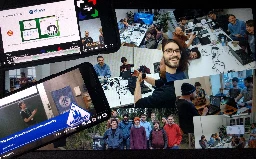
cross-posted from: https://lemmy.ml/post/20851873
- Weekly GNU-like Mobile Linux Update (39/2024): ARM Gaming Editionlinmob.net Weekly GNU-like Mobile Linux Update (39/2024): ARM Gaming Edition
Another week has almost passed, here's what happened: postmarketOS shares plans for adding systemd and immutability, a Sailfish OS community roundup, a Newsletter by UBports, some progress on working phone calls on the PinePhone Pro, Akademy talks uploaded on PeerTube, Valve seemingly invested in Pr...

- Mirror Hall: peer-to-peer screen sharing between Linux devicesnotes.nokun.eu Mirror Hall: peer-to-peer screen sharing between Linux devices
Tinkering with Linux on mobile devices quite a bit, the growing pile of Linux tablets and phones on my desk often looks underutilized. I wish I could wire some of those lonely black slabs together and extend my monitor, or why not, use them as controllers for my desktop windows in a half PARC Tab, h...
- Follow-up Two: Mobian on the Pixel 3a / 3a XL

This is a follow-up to my earlier posts:
https://lemmy.sdf.org/post/12809764 https://lemmy.sdf.org/post/19600671
We're Getting Closer.
It's just small stuff left that needs a bit of piecing together, though I've now been daily driving my port for the past two weeks already.
This Works
- booting
- display
- touch
- modem <- You might have to switch to the other slot if it does not work:
mmcli -m 0 --set-primary-sim-slot=1, options are1or2. Note that the modem could also be a different number, maybe try-m 1if it is not found as the command will reboot the modem and then it changes. - plymouth
- battery/charging
- mobile data
- wifi
- torch
- suspend
- call audio
- vibration
- Bluetooth™
- full disk encryption
- eSIM (I'm working on the packaging for the tool you need to provision it)
- SMS
- audio (ALSA config not packaged, but can be added manually)
- camera (have taken a few photos, but the kernel driver is still work in progress and sometimes it just does not work)
This Has An Unknown Status
- Fingerprint Sensor
- NFC (should work, does so on pmOS)
This Does Not Work Yet (Soon™)
- GPS
- USB host mode (no Kernel support yet, but apparently this is being worked on)
- Verified Boot (first need to do research whether this is actually feasible)
This Is Missing And Will Come Later
- accelerometer
- magnetometer
- ambient light sensor
- barometer
Project Status
To Do List
- Make installer images work on this device
- Have droid-juicer run on installer images
- Get into the repos:
tinyalsaandq6voiced(I've already packaged both)- ITP for Tinyalsa: https://bugs.debian.org/cgi-bin/bugreport.cgi?bug=1079473
- ITP for q6voiced: https://bugs.debian.org/cgi-bin/bugreport.cgi?bug=1080483
- Combine SDM670 kernel patches with those in the Mobian qcom kernel
Done List
- New release of qcom-phone-utils required so that my patches are available from the repo
- https://salsa.debian.org/DebianOnMobile-team/qcom-phone-utils/-/commit/4f77281197c6ba1cfc1a82596157d00e8a7e014b (firmware folders)
- https://salsa.debian.org/DebianOnMobile-team/qcom-phone-utils/-/commit/9aa29a1d0bd2327e9c74317d516a8aeecf820304 (fixes bootimg generation with LUKS)
- https://salsa.debian.org/DebianOnMobile-team/qcom-phone-utils/-/commit/3ddb192b5c78b444065f23647b373ad66ce3617d (fixes on-screen keyboard for LUKS passphrase)
- Remove hard-coded value in the
droid-juicersystemd unit- https://gitlab.com/mobian1/droid-juicer/-/issues/4
- Make sure my
q6voicedpackage no longer includes a hard-coded config for this device (known solution, need to implement) - add udev rule for the vibration motor to the right package
- https://salsa.debian.org/Mobian-team/devices/kernels/qcom-linux/-/issues/3
- upstream: https://source.puri.sm/Librem5/feedbackd/-/merge_requests/139
Misc Issues
- ALSA config for the device has not been upstreamed yet
- Issues with 5 GHz wifi
- Can be worked around by forcing the phone to only use the 2.4 GHz band, for example using
nmtui, the network settings of GNOME/Phosh are bit too simplistic for that
- Can be worked around by forcing the phone to only use the 2.4 GHz band, for example using
- No idea how to get the call audio on Bluetooth, meaning you will have to hold the phone or use a cable, for now
(This is a non-exhaustive list)
Low Priority
- create/find script/tool that brings up Bluetooth & then package it
- https://salsa.debian.org/Mobian-team/devices/kernels/qcom-linux/-/issues/5
Other than that... Everything should be there. It's definitely usable already.
Just a few smaller quirks to iron out and two packages to get into the repo.
The Sources (Use The Source, Luke)
- My efforts of packaging a device-specific kernel: https://salsa.debian.org/erebion/sdm-670-linux (which will be used until all patches are part of upstream Linux and we can finally use a regular mainline kernel)
- mobian-recipes, which is used to build images: https://salsa.debian.org/Mobian-team/mobian-recipes
- droid-juicer, which retrieves some important files from some partitions: https://gitlab.com/mobian1/droid-juicer
- https://wiki.postmarketos.org (lovely folks, thanks for sharing everything you found out the hard way :D)
Thanks For All The Fish
Huge thanks to be sdm670-linux project and flamingradian who runs the project (just one person!) to make sure the Kernel works on those devices! :)
I don’t know how Kernel development works, so I would have never started porting without this project.
Find that here: https://gitlab.com/sdm670-mainline/linux
Questions Accepted / Ask Me Anything About The Project
I will gladly answer all questions, I hope that more people will start porting if it becomes clear that this is not arcane magic. It’s mostly just arcane. And a community of friendly people that try to be helpful.#
- DeltaTouch 1.6.0 is out, finally bringing basic Webxdcsocial.tchncs.de DeltaTouch (@deltatouch@social.tchncs.de)
DeltaTouch 1.6.0 is out, finally bringing basic Webxdc support as well as bugfixes and minor improvements 🎉 Many Webxdc apps just work already. Some apps like Webxdc Store (via xstore@testrun.org) need stuff that's not there yet (add apps as file attachments for now). For a few others, touch inp...
DeltaTouch is a DeltaChat client for UbuntuTouch.
- KDE Kasts on Phosh: Icons missing, what's the fix?
Hey there,
I installed Kasts from KDE on Phosh, all the icons are missing and it therefore is difficiult to use.
How can this be fixed? Do I have to install some sort of icon package?
Maybe someone even knows the exact Debian package that's missing. :D
- postmarketOS in 2024-08: Pixel 3A with Camera, Self-hosted GitLab, Eventspostmarketos.org postmarketOS in 2024-08: Pixel 3A with Camera, Self-hosted GitLab, Events
Aiming for a 10 year life-cycle for smartphones
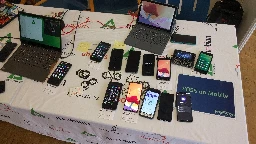
- Consolo is a modular cyberdeck with a Raspberry Pi 5 for brains, a 7 inch display and 7 hours of battery life - Liliputingliliputing.com Consolo is a modular cyberdeck with a Raspberry Pi 5 for brains, a 7 inch display and 7 hours of battery life - Liliputing
Consolo is a modular cyberdeck with a Raspberry Pi 5 for brains, a 7 inch display and 7 hours of battery life
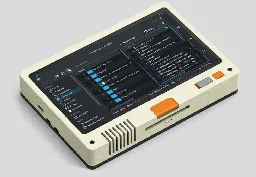
- pinephone?
I was gonna buy a pinephone, but i want to know if this is really the best choice. I'm a real fan of the hardware switches. Any recommendations?
- Current state of re-locking bootloaders on former Android devices?
Hello internet,
what is the current state of re-locking bootloaders on devices that previously ran Android?
Any implementations? How does that work?
- eSIM management on Qualcomm phones [FrOSCon]media.ccc.de eSIM management on Qualcomm phones
In recent years phones have started getting an eSIM chip built-in to the phone which is a modern replacement for a physical SIM card you ...
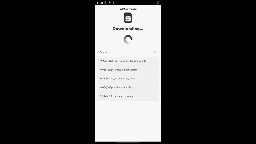
- Ubuntu touch on the fairphone 4
It looks like ubuntu touch on the fairphone 4 is nearly perfect, and the features that don't work I won't miss. I'm very tempted to buy a second hand fairphone 4, but I can't really find much on the experience of ubuntu touch. How do you install apps? Are there repo's that I can look at? And is it just branded ubuntu touch, or will any ubuntu apps made for arm work on ubuntu touch? If anybody has some links or personal experiences they could share, that would be greatly appreciated.
Thanks a lot in advance!
- postmarketOS: Short financial update and lookaheadpostmarketos.org Short financial update and lookahead
Aiming for a 10 year life-cycle for smartphones
- A streamlined and sustainable app deployment approach with Mobifreef-droid.org A streamlined and sustainable app deployment approach with Mobifree | F-Droid - Free and Open Source Android App Repository
Imagine you created your very first app. You developed the concept, workedtirelessly on the key features, design, tested it and fixed the bugs. Themoment has...

- An eSIM manager for Mobile Linuxlucaweiss.eu An eSIM manager for Mobile Linux - Luca Weiss
For a while eSIM management on Mobile Linux, such as postmarketOS, was just a dream. Now it’s real! Background Nowadays many smartphones and other devices have a so-called eSIM - or eUICC - built-in to the device. This eSIM is essentially a chip on the PCB of the device that allows an end user to do...
- Compact mobile for linux
I want to buy a mobile phone that would be great for linux mobile (ubuntu touch or postmarket os), fairphone 4 would be almost ideal if it wasn't so big (i'm currently using pixel 8 + GrapheneOS). What do you recommend for my desire to use a compact mobile for linux + a solid camera? Thanks for the answers.
- We need to support Linux Phones development more now than ever based on recent news
As Google Chrome warns uBlock Origin may soon be disabled in the future. They’re going to eventually ban adblockers for chromium. We need to quickly respond with alternatives to android, we must end this market consolidation.
- Follow-up: Mobian on the Pixel 3a / 3a XL (getting close)

This is a follow-up to my earlier post: https://lemmy.sdf.org/post/12809764
(I re-used the photo as it was quicker and because the UI still looks the same, anyway, five months later.)
Time for an update on where I got with the Pixel 3a / 3a XL so far:
I Am Getting There.
There isn't that much missing anymore. Will probably soon try this out as my daily driver, just did not yet have the time to configure all the applications I need. :)
This Works
- booting
- display
- touch
- modem
- plymouth
- battery/charging
- mobile data
- wifi
- torch
- suspend
- SMS (only receiving was tested, but I don't have reason to believe sending wouldn't work)
- vibration (udev rule needs to be added to the corresponding package)
- audio (ALSA config not packaged, but I'll get to that...)
- Bluetooth™ (mac address has to be set after each boot, one single command, should probably package a script, still thinking about the right path)
- eSIM (supported, but needs a bit more testing)
- camera (front camera buggy, back camera works but patches not in git yet)
- GPS (needs some improvements to accuracy)
This Does Not Work (Soon)
- USB host mode
- call audio (requires packaging
q6voicedto get audio from the modem, but of course VoIP would already work) - full disk encryption (no installer images yet, once the other stuff is done this will magically be there)
This Has An Unknown Status
- Fingerprint Sensor
- NFC (no idea what software I could use for testing, but should work, does so on pmOS)
This Is Missing And Will Come Later
- accelerometer
- magnetometer
- ambient light sensor
- barometer
The Main Issues That Prevail
- A systemd unit with a hard-coded value, that has to be manually edited for now
- ALSA config not yet packaged, has to be manually copied for now
- few things to do for kernel packaging and then submitting that to Mobian
- no call audio yet, as the daemon (q6voiced) is not yet packaged, but can be manually added for now (I'm considering just using VoIP until I can get to that :D)
- simple script that brings up Bluetooth has to be added somewhere
Other than that, I cannot think of anything else that would be missing.
The Sources (Use The Source, Luke)
- My efforts of packaging a device-specific kernel: https://salsa.debian.org/erebion/sdm-670-linux (which will be used until all patches are part of upstream Linux and we can finally use a regular mainline kernel)
mobian-recipes, which is used to build images: https://salsa.debian.org/Mobian-team/mobian-recipesdroid-juicer, which retrieves some important files from some partitions: https://gitlab.com/mobian1/droid-juicer- https://wiki.postmarketos.org (lovely folks, thanks for sharing everything you found out the hard way :D)
Thanks For All The Fish
Huge thanks to be sdm670-linux project and flamingradian who runs the project (just one person!) to make sure the Kernel works on those devices! :)
I don't know how Kernel development works, so I would have never started porting without this project.
Find that here: https://gitlab.com/sdm670-mainline/linux
Questions Accepted / Ask Me Anything About The Project
I will gladly answer all questions, I hope that more people will start porting if it becomes clear that this is not arcane magic. It's mostly just arcane. And a community of friendly people that try to be helpful.#
- Found some stuff which might be useful to those that would like WhatsApp on Linux phones
I personally don't use it, but I often see people complaining that they cannot use it on their Linux phone and that might help.
I stumbled across a project which implements the client connection, like the app does, for WhatsApp: https://github.com/WhiskeySockets/Baileys
That would allow building a third-party WhatsApp client.
That should also be relatively simple to integrate into a Matrix bridge such as mautrix-whatsapp. Apparently it uses the same API as the app, but it authenticates as a web client. If someone were to implement the authentication of the app, people could start using WhatsApp without the app and also comfortably bridged to Matrix.
You can still link the bridge to the app currently, but the app needs to be online or the bridge will get disconnected after a few days. And if you don't want to have a phone constantly running, you probably want a VM for the app and then that all gets fiddly.
Also, I recently found a blog post on how to build Matrix bridges, so that should be feasibe if anyone wants to implement that as part of the existing bridge: https://mau.fi/blog/megabridge-twilio/
- PureOS Optional Subscription Added to Advance Developmentpuri.sm PureOS Optional Subscription Added to Advance Development – Purism
Purism makes premium phones, laptops, mini PCs and servers running free software on PureOS. Purism products respect people's privacy and freedom while protecting their security.
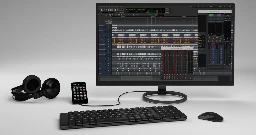
- I don't care how repetitive i am :(
I don't care how repetitive i am :( I've waiting for a similar experience since the jornada 720. y'all just don't know how good you have it (not to say there aren't glaring improvements that could be made)
\#pinephone #pine64 @linuxphones @linux #jlime #jornada #arch #sway #swayisbae
- Lindroid Lets You Run Linux as an App on Androidnews.itsfoss.com This Project Lets You Run Linux as an App on Android
Linux can run in all forms and sizes. And, that's true.
